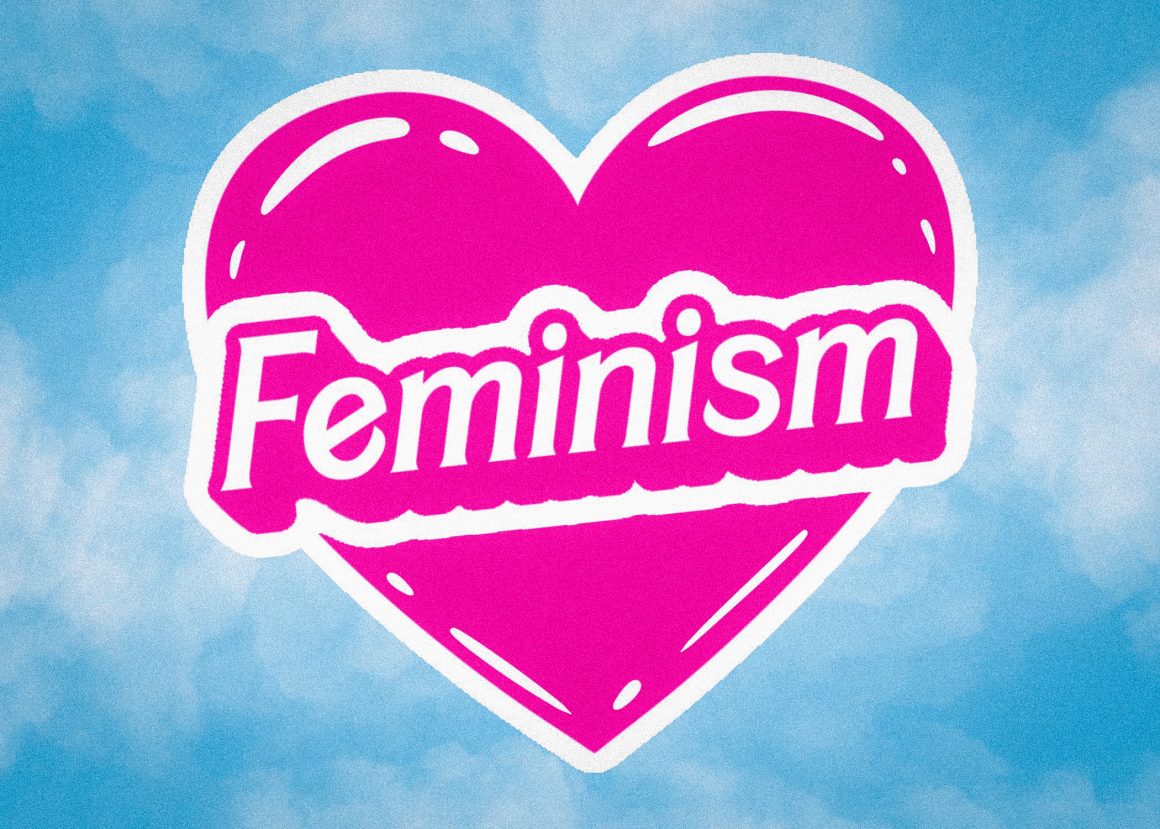
Feminism in the reminiscence of the Barbie movie
By Eda Kamal, March 6 2024—
I first heard it on TikTok about halfway through last year, but the statement quickly made its way into the real-life vernacular of myself and many of my peers.
“Misogyny? In the year of the Barbie movie?”
I saw the movie on its opening weekend, dressed up in my pinkest outfit. I didn’t care much for Barbies as a child, and my mother — whom I was seeing the movie with — did not have the money to play with any when she was young. But Greta Gerwig did not make Barbie as an homage to the toys; rather, as an attempt to connect the meaning of the dolls to the experiences of women and girls universally. I don’t want to talk about the movie itself, though. That topic has been inspected, studied and boiled down to its very core since July 2023. Instead, I have noticed the movie and other events of the past year being utilized online as responses to everyday acts of misogyny.
For example, I would observe a comment from a man who spoke along the lines of what a girl can or can’t do and what they are and isn’t allowed to be. One of the top responses to this would always be some form of “Really? In 2023? The year of the Barbie movie?” I’ve even seen some more recent responses to this behaviour say “In the decade of the Barbie movie?” furthering the statement’s longevity.
Feminism presents countless interpretations, political alignments, goals and ideas. There is no definitively marking any one concept as feminist because there will always be someone who disagrees. However, what is universal is the fact that feminism universally affects everyone. Just as toxic masculinity and femininity have negative impacts on all genders, feminism is focused on solving societal problems caused by prejudice against women. These problems range from sexist portrayals in children’s toys to pregnant women’s treatment in war-torn regions. No matter where in the world you are, how much privilege you have or the religious practices you adhere to — feminism is a necessity in order to ensure the well-being of all.
It is unfair, then, to assume a movie solved it all. As enjoyable and important as the Barbie movie was, I honestly did not observe much change in my daily life when it came to the misogyny I faced after it came out. Many women on social media, I presume, believed that the Barbie movie would be a definitive lesson to men and an encouraging hand on women’s backs. Instead, the message of the film was completely overshadowed by men such as Jo Koy at the most recent Golden Globe awards, when he said the movie was based on “a plastic doll with big boobies”. This was in direct and purposeful contrast to his comment on Oppenheimer, released the same day as Barbie — Koy’s praises stated it was based on a Pulitzer Prize-winning book. A sexist joke about the Barbie movie at an award show, in the very year of the Barbie movie. Who would have thought it possible?
And if the release of the film did little to help the tribulations of women in Western nations, do we think it made any sort of dent at all in women’s issues in lesser-developed areas of the world? Those with little menstrual care, those whose queerness or deviancy would mean certain death — what did the Barbie movie do for these women? Acts of violence towards women occur before, during and after the year of the Barbie movie. As shiny and pretty and polished as womanhood can be, it is also a genuinely traumatic experience fuelled by the suffering of one’s fellows across the globe. It is difficult to dress up in my frilly pink dress for a silly movie when women who could be my sisters, aunties, nieces and friends are being denied the right of autonomy to their bodies.
“In the year of the Barbie movie” is a statement intended to embarrass the perpetrator of a sexist joke. How could they possibly begin to think to be sexist, in this one specific year in which a pink, sparkly and emotionally charged movie was released? The truth is that the perpetrators of misogyny do not care. The politicians in charge of directing tax dollars away from the needy and toward their selfish purposes do not care. It doesn’t matter when the joke is made, because no matter what kind of art is made to prove a point, it will never be enough to deter deep-rooted misogyny. You ask how we allow the pink tax, the gender pay gap and the Andrew Tate stans in the year of the Barbie movie. Truth is, it doesn’t matter what year it is. Real change doesn’t start with a movie. A movie can only provide one piece of kindling to fuel a fire of rage, resilience and revolt.
This article is a part of our Voices section and does not necessarily reflect the views of the Gauntlet editorial board.
